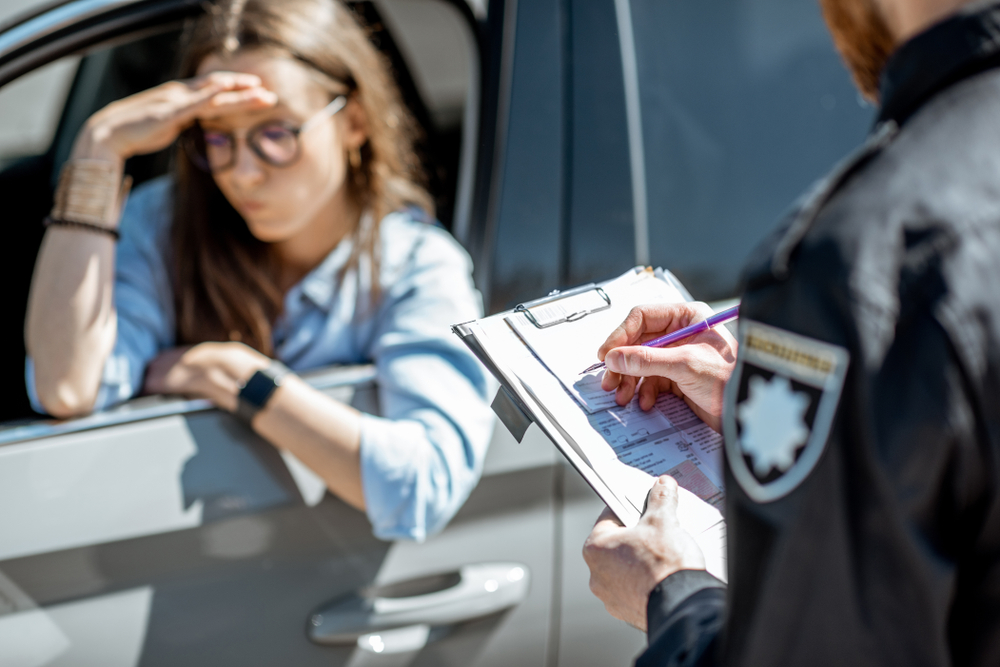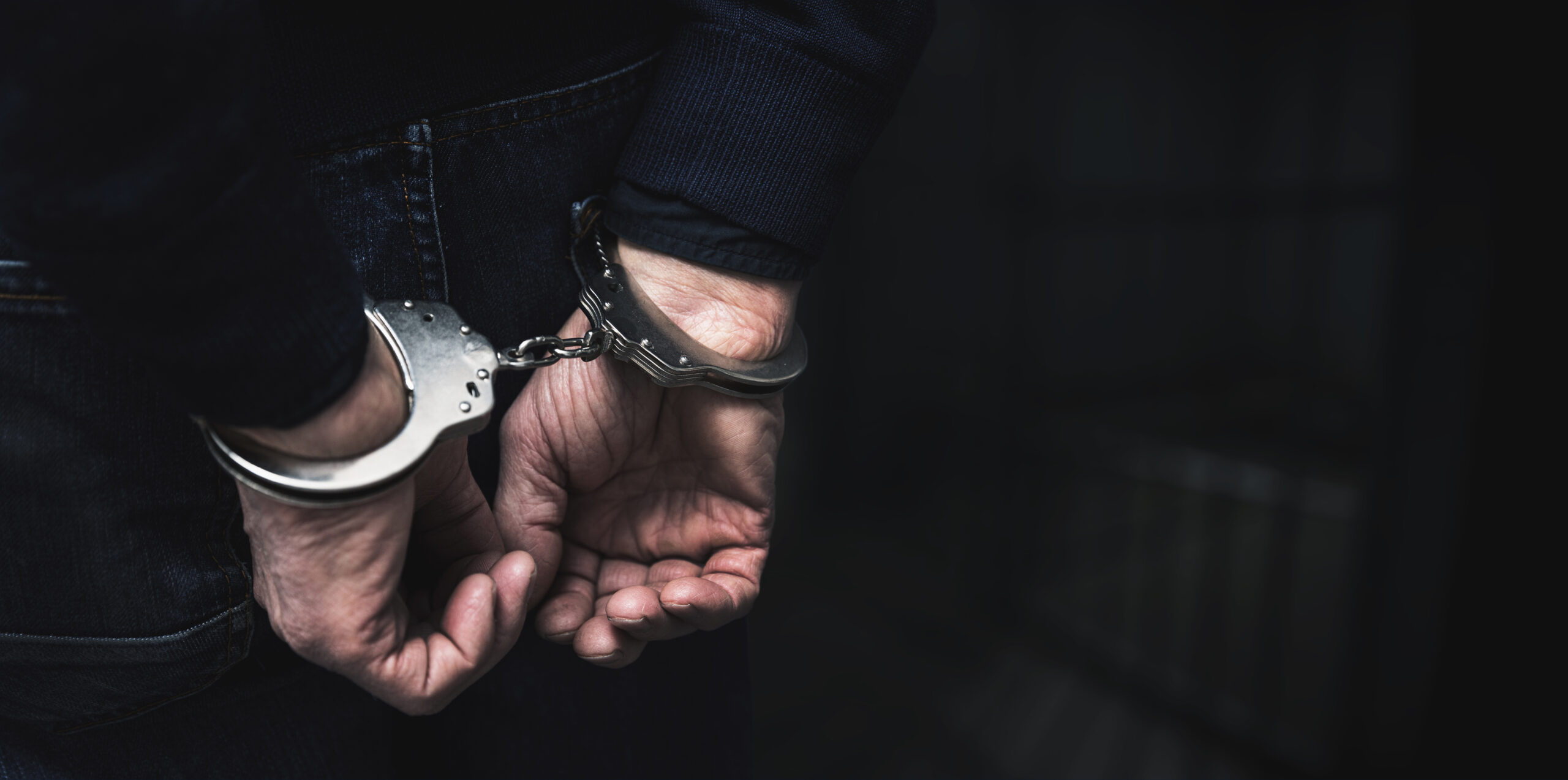A traffic ticket can be a criminal offense. Traffic violations can involve moving or non-moving violations. Non-moving violations, such as parking meter violations, are not serious and can result in a basic fine.
Driving-related offenses, on the other hand, may or may not be a criminal offense depending on the violation in question. They can be categorized as an infraction, misdemeanor, or felony. For example, seatbelt violations or failing to signal are not criminal offenses, whereas DUIs and hit-and-runs are.
Traffic Offenses Can Vary in Their Penalties Depending on How Severe They Are
Traffic violations and offenses are processed and penalized based on their classifications. A person’s driving record also plays a part in the penalties they receive for committing a traffic violation.
If a violation causes or contributes to significant property damage, bodily injuries, or fatalities, an otherwise low-level violation can have serious consequences. It may be treated as a higher-level misdemeanor or felony.
Low-Level Violations
Basic traffic infractions—sometimes called civil infractions—are low-level violations that are usually not classified as crimes. They are basic omissions that are illegal but are not treated as criminal activity.
Examples of civil infractions include driving errors, such as:
- Failure to signal
- Failure to yield
- Seatbelt violations
Strict liability rules apply to these infractions, and you can receive a ticket and other penalties regardless of your intent.
More Serious Violations
Moving violations tend to be more serious than non-moving violations, and you may have multiple options for handling a non-criminal infraction.
You can plead guilty and pay a fine online or via mail, or you can plead not guilty and appear in court for a bench trial. You may lose points on your record, and you may be required to attend traffic school.
According to the Pennsylvania Department of Transportation (PennDOT), you can face fines of up to $10,000, including jail time, for serious driving offenses. This does not include the cost of reissuing your license and other related charges after making a traffic offense.
Serious Offenses Can Lead to Fines, Imprisonment, and Harsher Penalties
In some circumstances, offenses for which you may expect nothing more than a ticket can be categorized as higher-level offenses. They can lead to fines and imprisonment, and they may be classified as misdemeanors or felonies.
Examples of driving offenses that can be classified as crimes include:
- Driving under the influence (DUI)
- Driving with a suspended or revoked license
- Driving recklessly or aggressively
- Being guilty of a hit-and-run or vehicular homicide
- Causing substantial property damage in an accident
- Causing significant bodily injuries in an accident
What Determines Whether a Traffic Offense is a Misdemeanor or Felony?
A traffic offense is categorized as a misdemeanor or felony based on the following factors:
- The jurisdiction of the region where the offense took place
- Whether the driver has a previous history of offenses on their record
- Whether the offense led to any injuries or damages
Some low-level offenses can even be elevated to a criminal offense if the situation warrants such action. For example, although speeding is typically a misdemeanor, if a motorist exceeds posted speed limits by an excessive amount or speeds in a school zone, they can face amplified penalties.
Similarly, an offense that would typically be classified as a misdemeanor can be elevated to a felony. This can happen if the driver is a habitual offender or seriously harms other individuals in an accident.
What are the Legal Consequences for a Traffic Offense?
75 Pa. C.S. §33 outlines the definitions, charges, and procedures that apply to traffic violations. These include the rules that apply to non-serious violations, such as parking violations, and serious accidents that result in death and extensive property damage.
Depending on the severity of the charges you face, penalties for traffic offenses can include:
- Fines
- Probation
- Parole
- Community service
- Suspension or revocation of your license
- Immobilization or impoundment of your vehicle
- Points docked off your license
You May Be Able to Contest Charges You Face for a Traffic Ticket
You have the right to plead guilty and pay a fine for a traffic ticket, but you also have the right to contest the ticket (including the level of charges it is categorized as) by appearing in court.
Many factors determine whether your offense is a minor traffic violation, misdemeanor, or felony, and an attorney from our law firm can help you fight the charges you face.
Ways to Fight Against a Traffic Ticket
You may be able to fight a ticket or lower the severity of your charges by showing that you have an otherwise clean driving history or that you were not guilty of the charges levied against you.
Similarly, you can argue against fines, jail time, community service, or traffic school by bringing forth evidence to show that you are not at fault or that you are an otherwise responsible driver who does not drive recklessly or against established driving norms and laws.
Call McKenzie Law Firm, P.C., to Receive a Free Case Evaluation
Remember that a traffic ticket is not a criminal offense unless the violation led to severe property damage or bodily harm. Whether you were guilty of a criminal offense rests in large part on your driving history, damage, or injuries that occurred in the accident, and whether you were guilty of a wanton disregard for the law and the safety of others.
For assistance with fighting a traffic citation or handling charges you face for a traffic offense, contact McKenzie Law Firm, P.C., today at (610) 991-7219.



